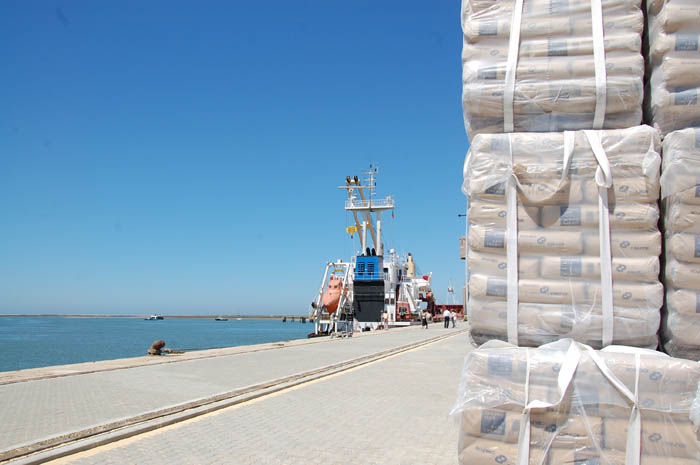 the port of Faro will end the year with a «substantial increase of 10%» in its movements, that is, with about «450 thousand tons of cargo», revealed João Franco, president of the Administration of the Ports of Sines and Algarve (APS), on a visit to this infrastructure.
the port of Faro will end the year with a «substantial increase of 10%» in its movements, that is, with about «450 thousand tons of cargo», revealed João Franco, president of the Administration of the Ports of Sines and Algarve (APS), on a visit to this infrastructure.
The main customer of the Port of Faro it is Cimpor, which, through it, exports a large part of its cement production to markets such as Algeria or Cape Verde.
Faro is "a small port, but strategically very important for developing the regional economy", enabling, for example, the export of cement that allows "to keep Cimpor alive and also maintain its 300 jobs", as explained by José Pedro Soares, administrator of the APS.
In addition to the cement already in bags, which generates a continuous movement of trucks between the factory near Loulé and the pier, to load the ships that dock there, the port of Faro It also serves as an export location for clinker (a cement in a basic manufacturing stage, from which Portland cement is manufactured) and carob (5 tons per year). In the past, rock salt from the Loulé mine was also exported through this port structure, but currently mining extraction is stopped.
Since APS took over the management of the ports of Faro and from Portimão, just over 12 months ago, 3,7 million euros have already been invested by that publicly-owned company in both structures.
Em Faro, according to João Franco, «the most pressing was the recovery of the wharf, which was demolished, had its structure very weak and was in very poor operational conditions». During the works, a “crater” was even discovered under the rails where the crane works, a potentially very dangerous situation.
But the intervention in the 11 hectares of the Port of Faro, of which one hectare is an international area, also included earthworks and cleaning of the entire area inside the perimeter, placement of a fence and creation of access control, with entrance and surveillance cameras, as well as installation of computer and radio communication systems .
"All this had to be ready, for reasons of community funds, by the end of July, and it is", guaranteed the president of the APS, during a meeting with journalists in the Port of Faro.
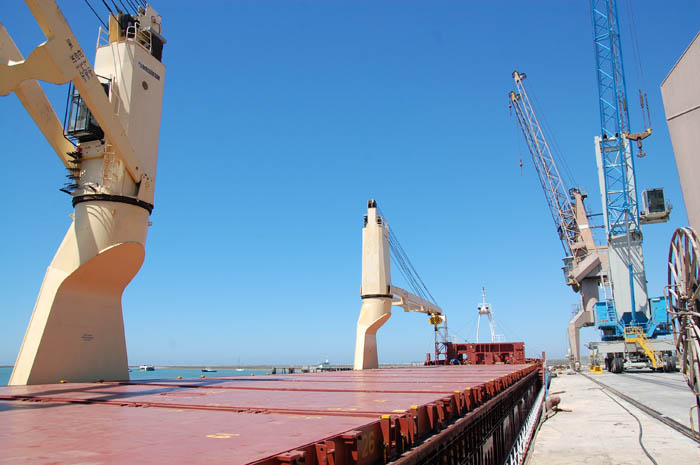 In a separate process, also already underway, «the dredging of the maritime accesses is underway, under the responsibility of Sociedade Polis, which makes the competition, receives the community funds, makes the payments and we [APS] pay the national component, which is around 700 thousand euros”, added João Franco.
In a separate process, also already underway, «the dredging of the maritime accesses is underway, under the responsibility of Sociedade Polis, which makes the competition, receives the community funds, makes the payments and we [APS] pay the national component, which is around 700 thousand euros”, added João Franco.
With these dredgings, the access channel to the port «goes from the current 6,5 meters [deep] to 8 meters», which «allows greater comfort in port operations», explained José Pedro Soares.
Faro It will also receive one of the two multifunctional vehicles purchased by APS, which allow “the fight against pollution and fires or even the rescue of people”, and which cost 60 thousand euros each. "Environmental issues are part of the DNA of the APS", guaranteed the president of the APS.
«Today, the ports of Faro and Portimão have absolutely incomparable conditions with what it was before. In fact, that was the purpose of the decision to integrate Faro and Portimão in the APS, to allow investments to be made in these ports in order to better fulfill their mission», he also stressed.
The earthworks and the cleaning that have already been carried out have made it possible to “break through” the port perimeter to install a Logistic Activities Zone, which allows APS to monetize the vast area so far without any use, other than serving as a dump.
This ZAL is open to the installation of companies "with business in the port sector", stressed João Franco. Some examples? «From warehouses to store goods for export or import and to work with added value, whether industrial units that want to import parts and assembly of equipment here, or for repairs to marine equipment, we face all hypotheses», replies that person in charge.
But outside the fenced perimeter of the port area, in other areas under the jurisdiction of APS in the Algarve, new businesses may arise, for example in the area of aquaculture, as is already the case in Sines.
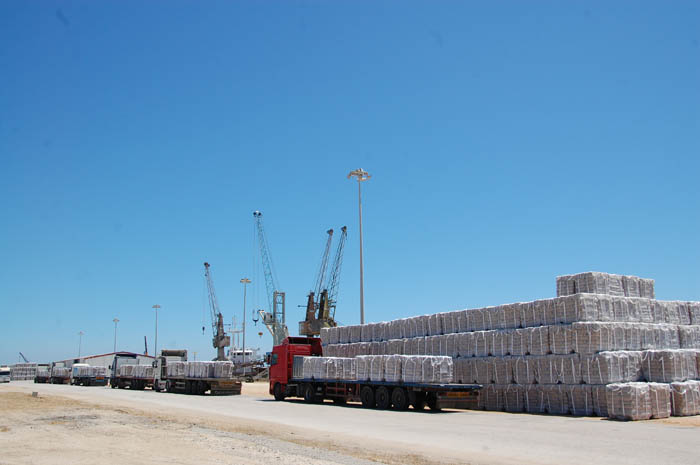 The cleaning and earthmoving intervention ended a few days ago and contacts are only now starting to be made with companies that might be interested in settling in that ZAL.
The cleaning and earthmoving intervention ended a few days ago and contacts are only now starting to be made with companies that might be interested in settling in that ZAL.
For now, Faro it is a cargo port. But there may be other areas to develop, such as passenger transport and cruises.
João Franco clarifies that “business in the ports depends a lot on what the economic activity wants to do. If you are interested in doing business in passenger and cruise transportation here at Faro, let them come and we will analyze!»
But, he recalled, they are "conditioned by the size of the port and the characteristics of the accesses".
In the past, companies have already invested in passenger transport from the Port of Faro, unsuccessfully. The best known case is that of the “Lusitania Express” ferry, which used to connect to Morocco.
"If economic agents are interested in developing this activity here in Faro, we will look at the matter with the greatest pleasure», concludes the president of the APS.
Photos de Elisabete Rodrigues/Sul Informação
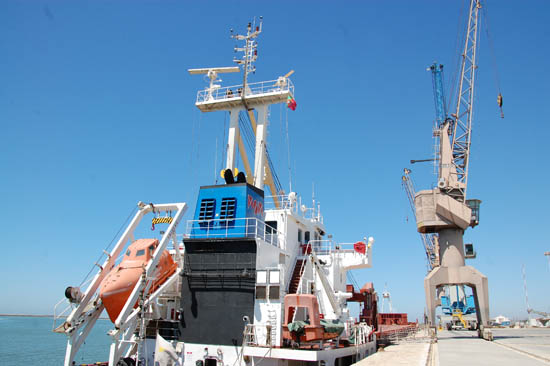
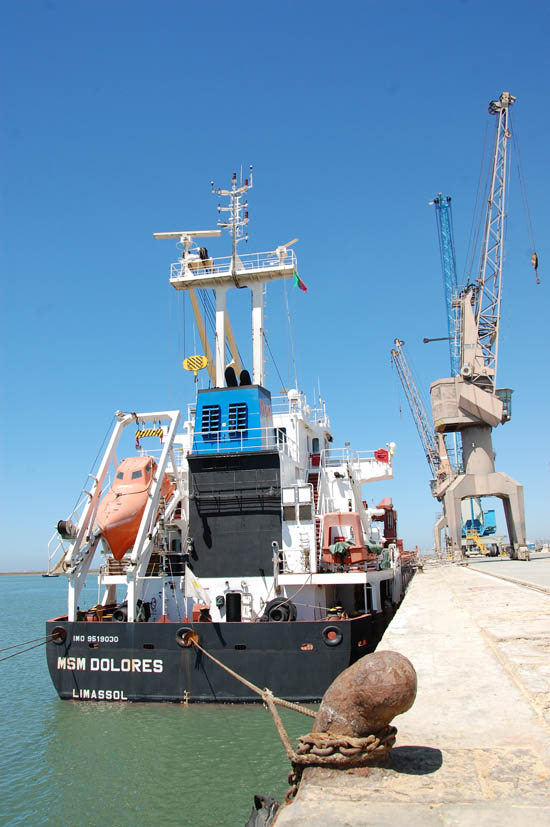
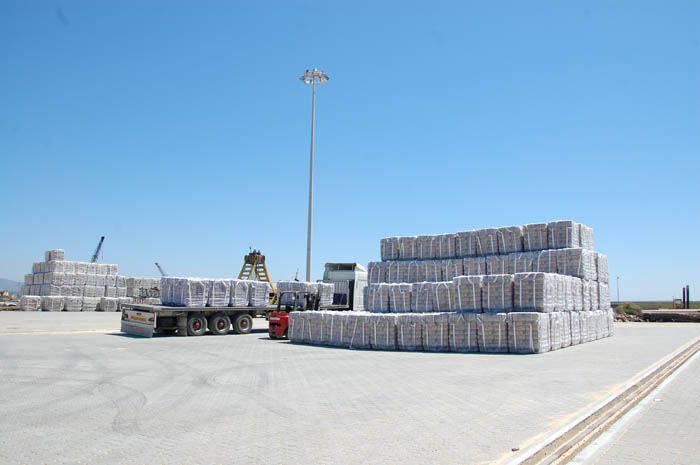


















Comments